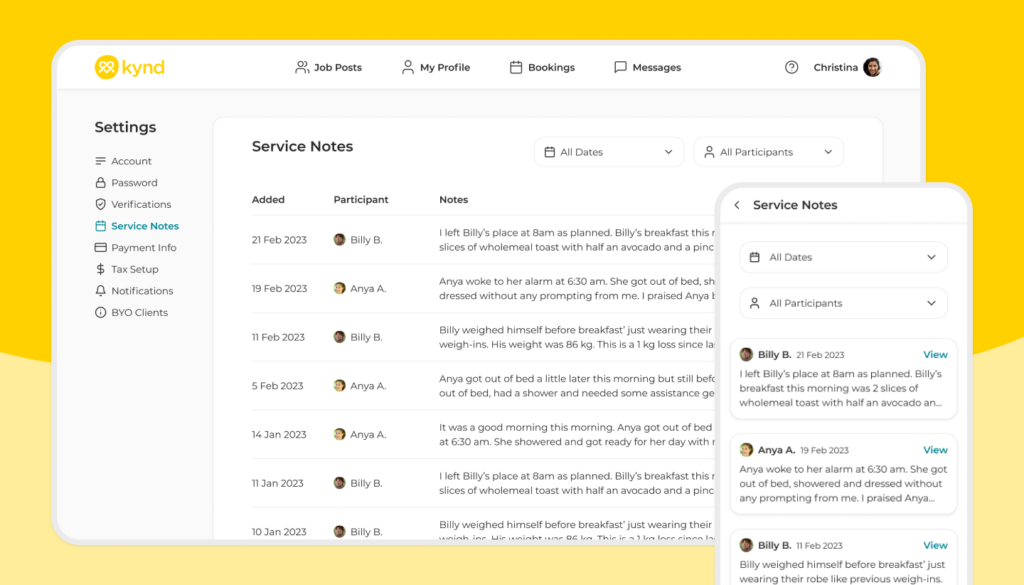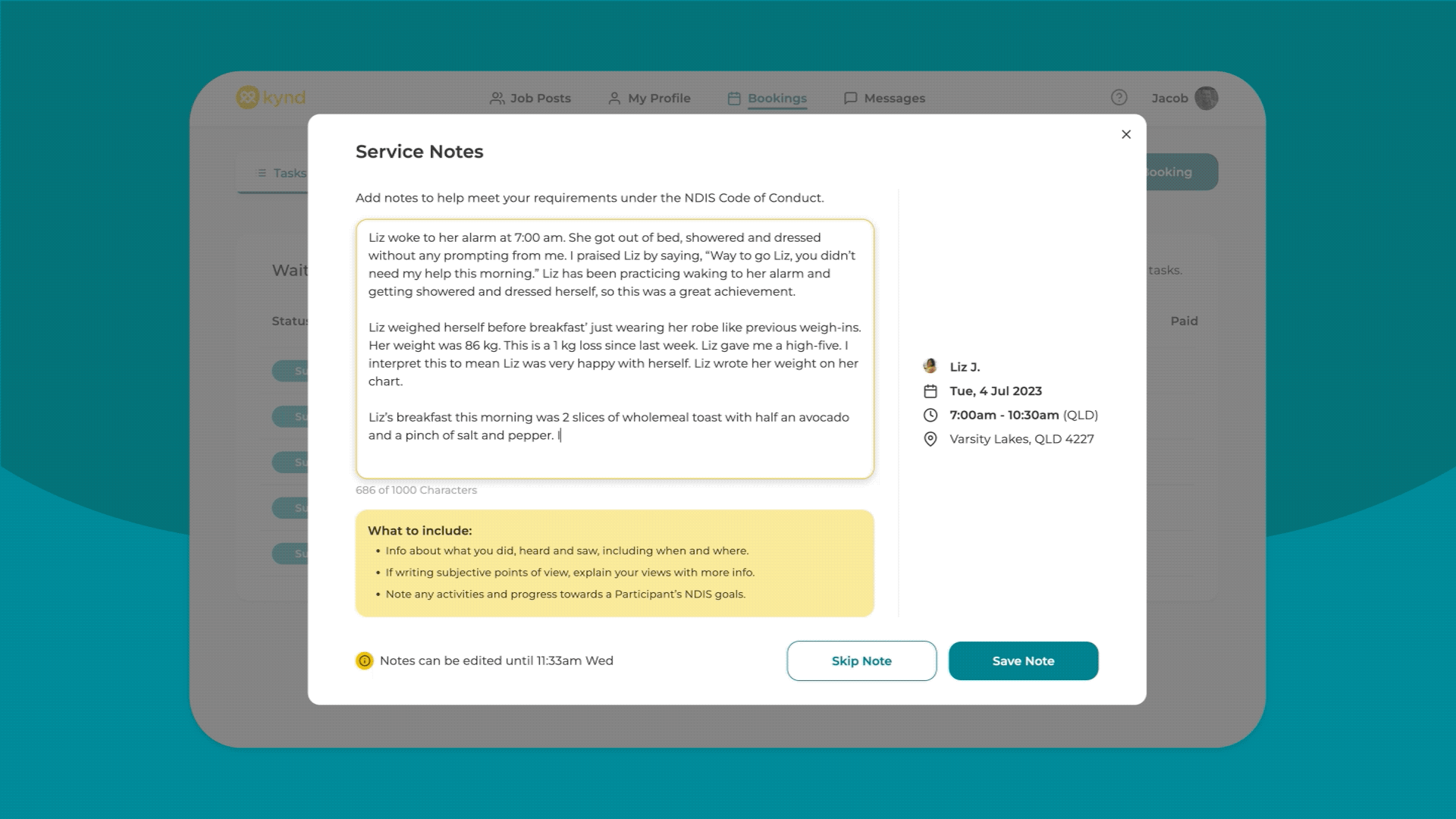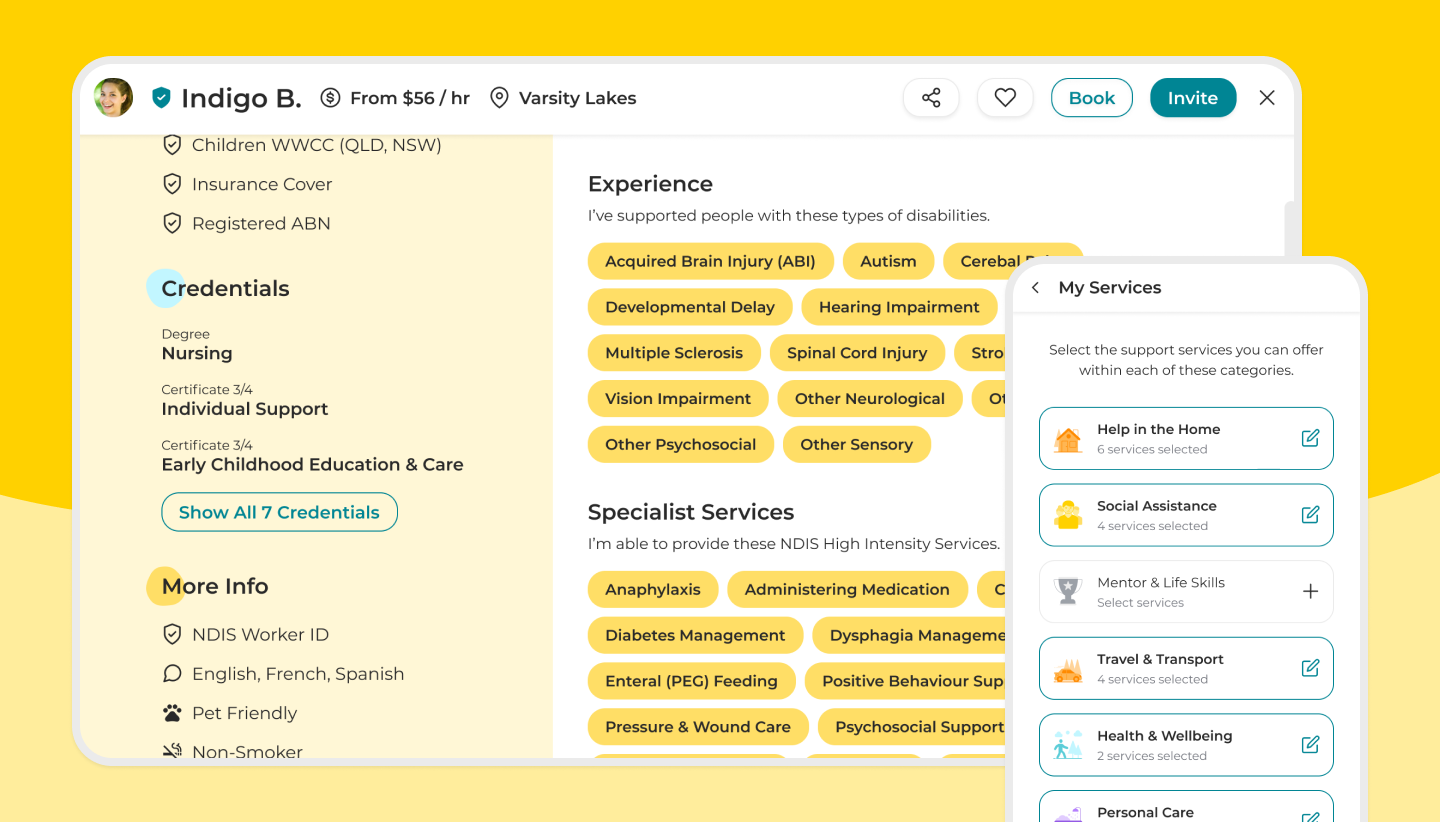What is a Service Note?
A service note is a written record of what you did with the person you support during your service. Sometimes service notes are referred to as progress notes, shift notes, daily notes, communication notes, or client notes.
Who can see a Service Note?
People who commonly ask for services notes to be shared with them include:
- Family and friends who assist with managing support services
- NDIS Plan Nominee or Correspondence Nominee
- Legally appointed Guardian
- Support Coordinator or Local Area Coordinator
- Allied Health Professionals
- Other direct support Services Providers
- The NDIA
- The NDIS Quality and Safeguards Commission
Things to remember:
- When sharing service notes with anyone else, other than when legally required to, you need consent from the Participant or their legal guardian to share.
- You have the right to not share notes if you believe doing so will cause serious risk or harm to the person.
- You may be legally required to provide service notes to relevant people and agencies upon request.
- Adhere to relevant rules, privacy principles, and laws when handling all private and confidential information.
Why is writing a Service Note important?
There are several reasons why writing notes after each service is considered best practice.
Some of these reasons are:
- Accountability and Transparency - You are recording details of support delivered and can substantiate your time if requested or required to.
- Person Centred Support - You are recording your learning and growing knowledge about the person you’re supporting, so service delivery better meets the person's individual needs and preference.
- NDIS Goal Progression - You are tracking how the person is meeting their NDIS goals and objectives with your support, which is helpful for deciding next steps and at NDIS plan review time.
- Consistency and Continuity of Support - You can share relevant insights and progress updates with current and new support services, as part of the person's multidisciplinary team.
- Quality and Safety - You are maximising great outcomes and minimising risk through great record keeping.
- Complainants and Investigations - You have a historical record if you are involved directly or indirectly in a complaint or investigation.
This all helps you to meet requirements under the NDIS Code of Conduct.

What goes in a Service Note?
A service note includes a factual and objective record of:
- what you did, heard and saw,
- when, where, how, why and with whom.
While factual and objective, this does not mean you can’t offer a subjective point of view. These just need to be substantiated.
For example…
“Using Karen’s picture communication cards, I reminded Karen she can’t see her parents today because they are interstate on holiday. Karen began to cry. I interpreted this to mean Karen missed her parents. I used the cards to ask Karen if she would like to phone them. Karen smiled. I interpreted this to mean Karen liked this idea”.
Service notes don’t need to be long to be effective.
What should not go in a Service Note?
There are a few things that are typically not included in service notes.
- Incidents - You may make reference to an incident occurring during a service, but as an independent Support Worker, it’s your responsibility to take action and resolve problems.
- Abbreviations and Jargon - Everyone needs to understand what has been recorded.
- Disrespectful Language - People have the right to be treated with dignity and respect, including in written records.
- Private Information - People have the right to privacy and confidentiality, so anonymising information is important.
- Irrelevant Information - A clear and concise note is king.





















